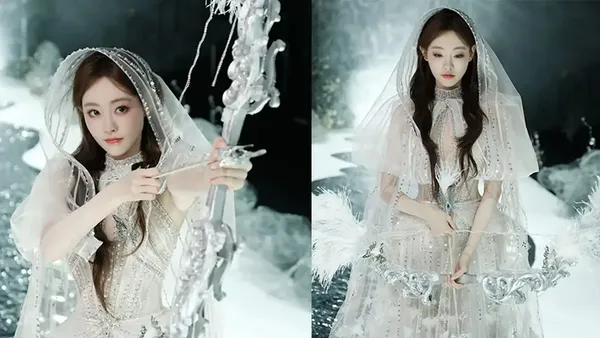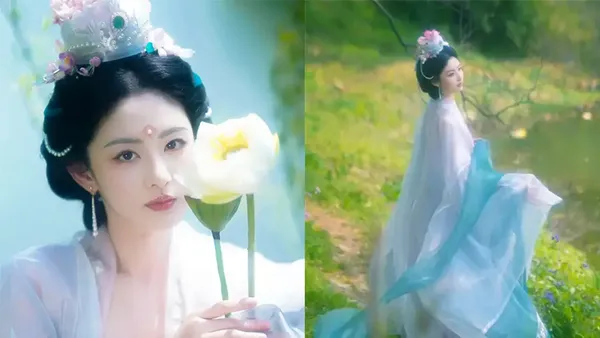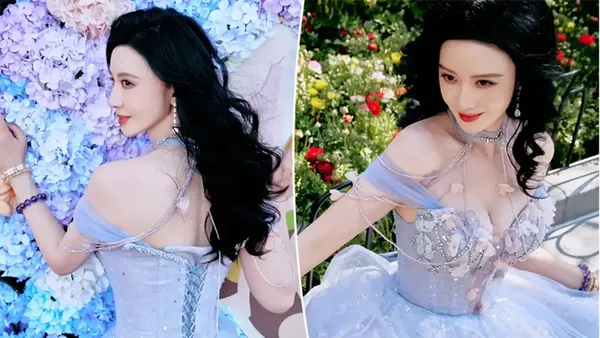Domestic movies have become the representative of mainstream culture to tell more confident Chinese stories.
Chinese films need to establish their own national consciousness and international vision, which is not only meaningful for the overseas dissemination of literary and artistic works, but also related to China's own subject construction. As can be seen from some hot commercial blockbusters, a more confident Chinese story is beginning to emerge. With the rise of China's economy and the promotion of the construction of "Belt and Road Initiative", film plays the dual task of integrating the hearts and minds of the people and publicizing the national policy abroad in the construction of national culture.
from some hit domestic commercial blockbusters, we can see that a more confident Chinese story is beginning to emerge.
original title: tell a more confident story of Chinawith the rise of China's economy and the promotion of the construction of "Belt and Road Initiative", films play the dual task of integrating the hearts and minds of the people and publicizing national policies abroad in the construction of national culture. Chinese films need to establish their own national consciousness and international vision, which is not only meaningful for the overseas dissemination of literary and artistic works, but also related to China's own subject construction. As can be seen from some hit domestic commercial blockbusters, a more confident Chinese story is beginning to emerge.
since the new century, under the promotion of the policy of cultural industrialization, film has become the representative of the current Chinese mainstream culture, not only forming a certain market scale effect, but also a cultural window to show and observe the changes of Chinese society. With the rise of China's economy and the promotion of the construction of "Belt and Road Initiative", film plays the dual task of integrating the hearts and minds of the people and publicizing the national policy abroad in the construction of national culture. Chinese films need to establish their own national consciousness and international vision, which is not only meaningful for the overseas dissemination of literary and artistic works, but also related to China's own subject construction. As can be seen from some hot commercial blockbusters, a more confident Chinese story is beginning to emerge.
< strong > Jackie Chan movies focus on the Silk Road < / strong >
in 2015, Jackie Chan's New year film "the Master of Heaven", starring Jackie Chan, is of great cultural significance. This film tells the story of an international theme that took place on the ancient Silk Road. Jackie Chan, the former Hong Kong international police, became the great protector of the mansion of the Western regions in the Han Dynasty, undertaking the important task of coordinating the relations between the countries in the Western regions and maintaining the peace of the ancient Silk Road. Different from the weak national image of China since modern times, Huo'an, the Huns played by Jackie Chan, can equally engage in the dialogue between Chinese and Western civilizations with the Roman general, and use the Chinese concept of peace to change the life-and-death logic of war. This tolerant attitude of Chinese civilization based on traditional culture to western civilization reflects the self-confidence of Chinese subjects in the current era of economic rise.
this is especially true of "Kung Fu Yoga" directed by Tang Jili in 2017. Jackie Chan consciously represented this Sino-Indian co-production as a "Belt and Road Initiative" film, and Jack, a Hong Kong archaeologist in the former "Myth", was also transformed into a scientist. on behalf of China to help Indian princesses find and protect treasures.
< strong > domestic military films shape Chinese heroes < / strong >
in recent years, domestic military films have made breakthroughs. "Wolf Warriors 1" in 2015, "Operation Mekong" in 2016, "Wolf Warriors 2" in 2017 have all achieved good box office results. "Wolf Warriors 2" has also created the highest box office for a domestic film so far.

the success of these films lies in transforming traditional military films into action films on the one hand and conveying mainstream values in the way of commercial films on the other. Compared with previous Chinese soldiers fighting gangsters with bare hands or "millet plus rifle" guerrillas, the special forces in these films are strong personalities, martial arts and a hundred enemies. This kind of individualistic hero is similar to Iron Man and Captain America in Hollywood movies. Wolf Warriors 2 also presents a new international perspective. It is not anti-terrorism in cities or drug lords at the border, but fighting against mercenaries on the African continent, which brings out the background of Chinese capital and labor moving to Africa since the new century, especially after China's economic rise. For example, in the film, there are supermarkets run by Chinese people and factories invested by Chinese private capital. The hero Leng Feng's confidence in the face of American nurses and his pride in eradicating European mercenaries have changed the image of China as the "sick man of East Asia" in modern times.
compared with the story of the Chinese people realizing the American Dream in the western developed countries represented by the TV series "Beijingers in New York" in the early 1990s, today's Chinese people have become the representatives of modern, advanced and civilization in Africa. These films are all invested by Chinese capital, and the Chinese actors are absolutely male No.1, while most of the actors are foreign, and the location is also in Africa, which shows the strength of the operation of international themes in the Chinese film industry.
< strong > Magic theme films express the spirit of exploration < / strong >
in addition, in recent years, there have also been a number of magical and fantasy works adapted from online literature, such as "Nine-story Monster Tower" (2015), "the Legend of the Dragon" (2015), "Tomb robbing Notes" (2016), "Ghost blowing Lamps: exquisite Ancient City" (2016) and other movies and online dramas. Although these works have many defects in stunts and plots, they have important cultural meanings.
compared to describing contemporary history as scars and historical reflection since the 1980s, these tomb-robbing movies and TV dramas are not only the Chinese version of Indiana Jones (the protagonist of Hollywood director Spielberg's "the Raiders of the Treasure" series). More importantly, by touching the identity of Hu Bayi, an educated youth and veteran of the Vietnam War, the contemporary history of China is embedded in the story of treasure hunting and exploration. Thus, the revolutionary history from the 1950s to the 1970s is connected with the history of reform and opening up in the 1980s, and this exploration of the unknown and other land is used to express a certain modern spirit. It is just that this kind of magic film of contemporary history lacks a kind of cultural logic and value support, which makes these film and television cultures with exploring foreign land and other space have a kind of aerial feeling.
the text related to this is the 2015 movie Wolf Totem. Since modern times, China has been the object of conquest and colonization, that is to say, China is the other in the colonial story. Therefore, Chinese stories are often told from the perspective of the weak and pre-modern subjects. China can not occupy the position of modern subjects as naturally as the original modern countries in the West. The Wolf Totem jointly produced by China and France has changed the image of China as a conquered and colonized object, and the former modern subject has become a modern, post-industrial subject, through the affirmation of natural forces such as wolves, to tell a story of anti-modern and ecological civilization. It can be said that in the new round of restatement of Chinese history, China began to present the image of a new nation-state-with a long history and tradition, and gradually realized modernization after experiencing modernization in modern times.

2008, the world suffered a financial crisis. In 2011, China overtook Japan to become the world's second largest economy. China's road and Chinese model began to spread from elite topics in academic circles to a general social sentiment, coupled with the social revolution and political crisis caused by the global financial crisis. A new Chinese identity is emerging, reversing the lack of confidence in the Chinese system since the 1980s. From the popular texts, we can feel that people (including young people) have more understanding and recognition of the system and the country, as well as confidence in the Chinese system. This kind of contemporary China, which is a mixture of long ancient civilization, indomitable modern spirit and economic hard power, is indeed a completely new experience since modern times.
(the writer is a researcher at the School of Journalism & Communication, Peking University)
Editor: mary
 白羊座
白羊座 金牛座
金牛座 双子座
双子座 巨蟹座
巨蟹座 狮子座
狮子座 处女座
处女座 天秤座
天秤座 天蝎座
天蝎座 射手座
射手座 摩羯座
摩羯座 水瓶座
水瓶座 双鱼座
双鱼座









